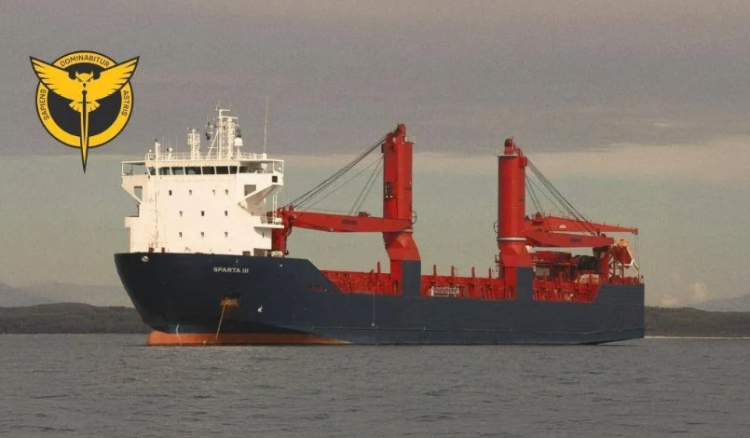A Russian cargo vessel tasked with transporting military equipment and personnel from Syria suffered a mechanical failure at sea, highlighting the logistical and strategic challenges Moscow faces amid its withdrawal from the war-torn nation. The incident, reported by Ukraine's Main Intelligence Directorate (HUR), underscores Russia's growing difficulties in maintaining its military presence and influence in the region following the collapse of Bashar al-Assad's regime.
The vessel, identified as the Sparta and later referred to as the Ursa Major, reportedly encountered a fuel pipe failure in its main engine, leaving it adrift near Portugal. "The Russian crew is trying to fix the problem and is drifting in the open sea," HUR noted in a statement. Marine traffic data corroborates the ship's stationary position between Spain and Algeria, raising questions about the feasibility of Russia's evacuation efforts from Syria.
The breakdown comes amid a larger withdrawal of Russian forces and equipment following Assad's sudden ouster earlier this month. Once a cornerstone of Kremlin-aligned geopolitics, Syria has shifted dramatically after opposition forces captured Damascus on December 8. Russia has since consolidated its remaining troops and assets around the Khmeimim Air Base and Tartus Naval Base, both of which are critical to Moscow's strategic ambitions in the Mediterranean.
Efforts to transport military resources to alternative locations in Africa, including Libya and Sudan, have faced significant obstacles. The New York Times reported that Russia has dispatched cargo planes loaded with military supplies to Libya, but Libyan Prime Minister Abdul Hamid Dbeibeh stated his country would not permit the entry of foreign forces without formal agreements. Meanwhile, a proposed Russian naval base in Sudan appears to have been rejected, leaving Moscow scrambling to secure its military footprint elsewhere.
The breakdown of the Sparta underscores the fragility of Russia's position in Syria. Analysts at the Institute for the Study of War (ISW) argue that losing the Tartus Naval Base would severely impair Russia's ability to project power in the Mediterranean and threaten NATO's southern flank. The collapse of Assad's regime and Moscow's inability to protect its strategic interests in Syria are expected to tarnish its image as a reliable ally, particularly among African nations that have sought Russian support.
The Kremlin's predicament extends beyond logistical challenges. Ukraine's HUR alleges that the victorious rebel leadership in Syria is negotiating the closure of Russia's remaining bases, with a deadline set for February 2025. Such developments would mark a definitive end to Moscow's long-standing influence in Syria, a country it once considered a key ally in the Middle East.
In response to the situation, Russian officials have remained tight-lipped. The incident also raises concerns about the broader implications of Russia's retreat, including the potential for increased instability in the region as other global powers and local factions seek to fill the vacuum left by Moscow's withdrawal.






